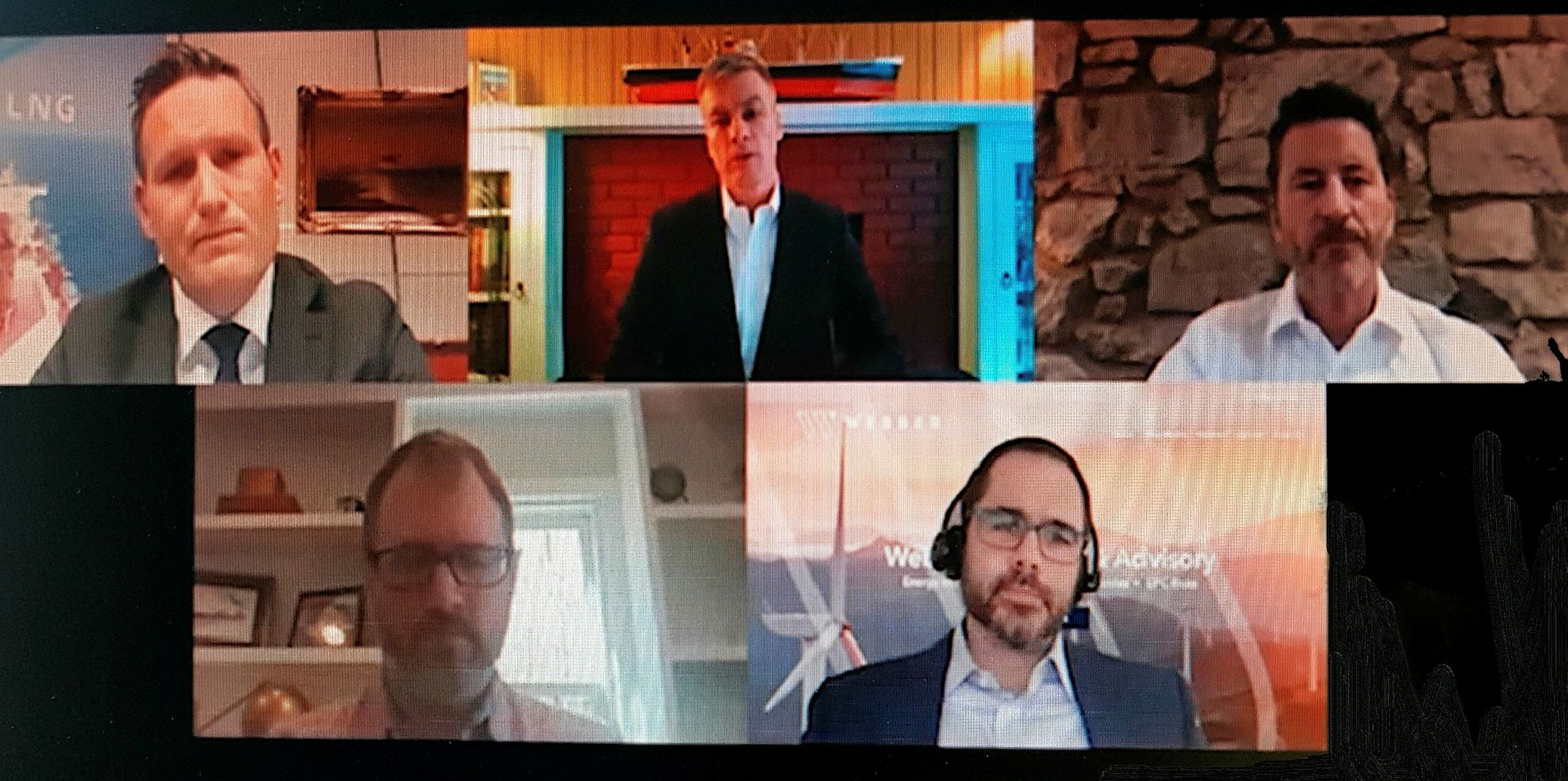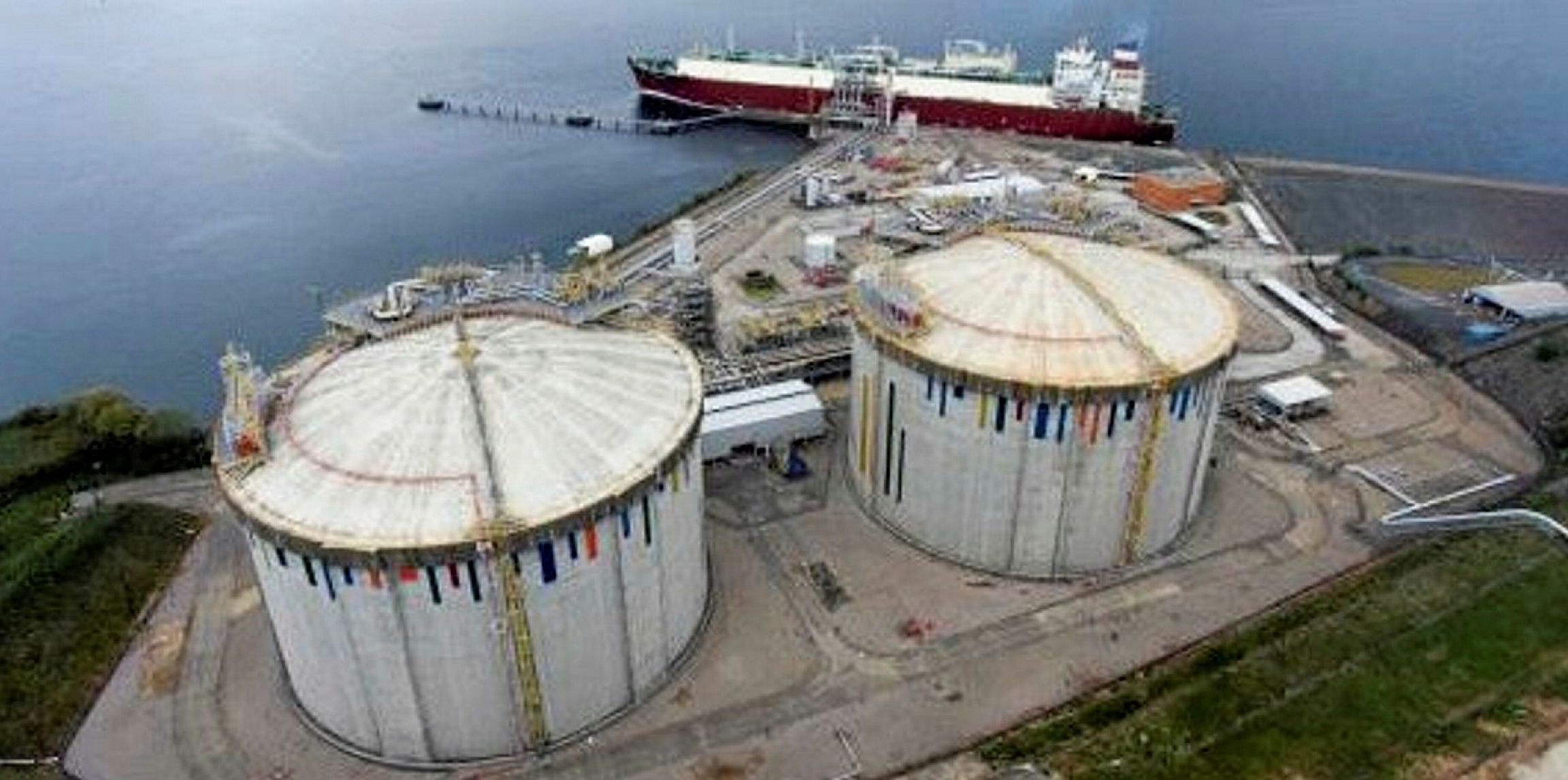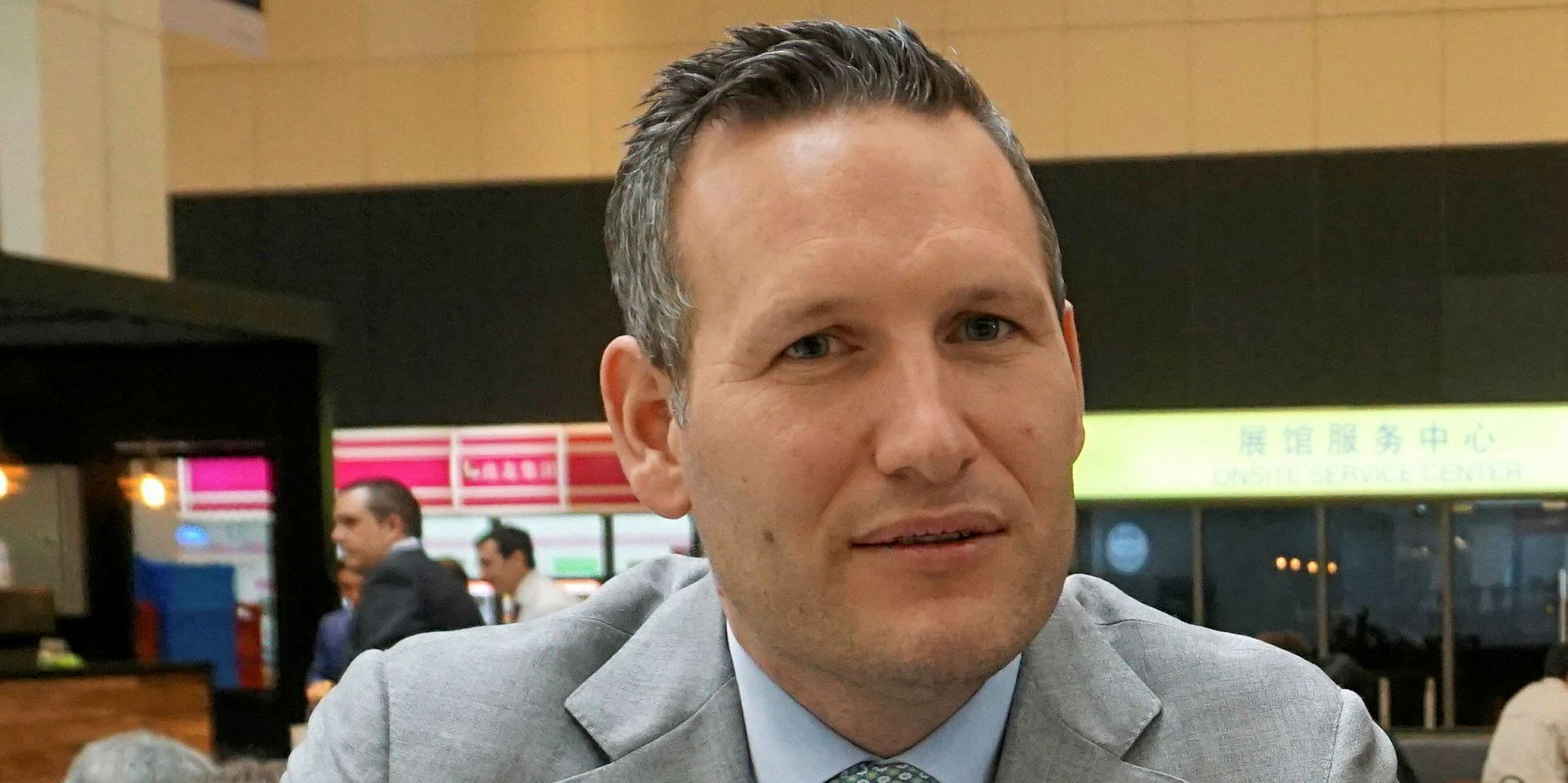Low LNG prices will create new downstream demand that will benefit freight and squeeze out competing energy sources, such as coal, according to Golar LNG and Flex LNG.
Speaking in an LNG session at Capital Link’s online conference chaired by Webber Research founder Michael Webber, Golar LNG chief executive Iain Ross said the market is likely to see increasing interest in floating storage and regasification units.
“As low LNG prices are maintained over the coming months and perhaps years, we should see an uptick in the interest in FSRUs as gas becomes a low-cost cheap form of entry into gas-fuelled energy,” Ross said.
He said the downstream market will continue to grow on the back of low-cost LNG, highlighting two LNG terminals Golar is developing in Latin America, where he said the pricing was making the switch to gas for customers an “even more attractive proposition” than it had initially been.
Ross added that when the industry gets sight of the future of LNG pricing then FLNG projects will also become attractive.
We will be drowning in a lot of cheap LNG and that is going to create demand and demand for freight.
Oystein Kalleklev
Flex LNG chief executive Oystein Kalleklev said the oil price crash could be good for the freight market.
He said, right now, LNG is cheaper than coal — which he described as the junk food of the energy market.
Kalleklev said the market could possibly see contract LNG prices fall below spot levels as autumn approaches and stressed that Covid-19 is a respiratory disease, so the switch to gas is also a health issue.
“We will be drowning in a lot of cheap LNG and that is going to create demand and demand for freight,” he said.
Positive impact
Panellists said the current LNG market is experiencing an uptick in spot charter rates and a surge in interest for multi-month charters.
Teekay Gas Group chief executive Mark Kremin said his company has just fixed one vessel to an international trader and expects to lift subjects soon on another ship that will be chartered to an Asian utility. He said both are multi-month charters that will run through the coming winter period, which will give the company 98% cover on its 47-vessel fleet.
Poten & Partners managing director Jefferson Clarke said energy major charterers are “playing it very conservative” and chartering in tonnage to give them cover rather than subletting out their ships.
He said this, and an uptick in floating storage, is going to have a “positive impact on the market”.
Kalleklev said Flex currently sees about 15 LNG carriers in floating storage mode.
Clarke said the brokerage, which measures floating storage as a percentage of LNG on water as to what was imported per month, logged it at historical lows of 37% at the end of February but is now seeing this climb back up again as fleet speed drops.
The three shipowners on the panel also stressed the need to support their crews during the current coronavirus pandemic.
Kremin said crew relief is “pretty much impossible” right now. He added that over time this could become a bigger issue.






